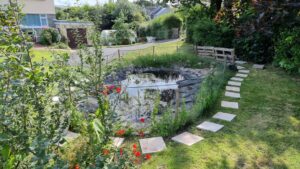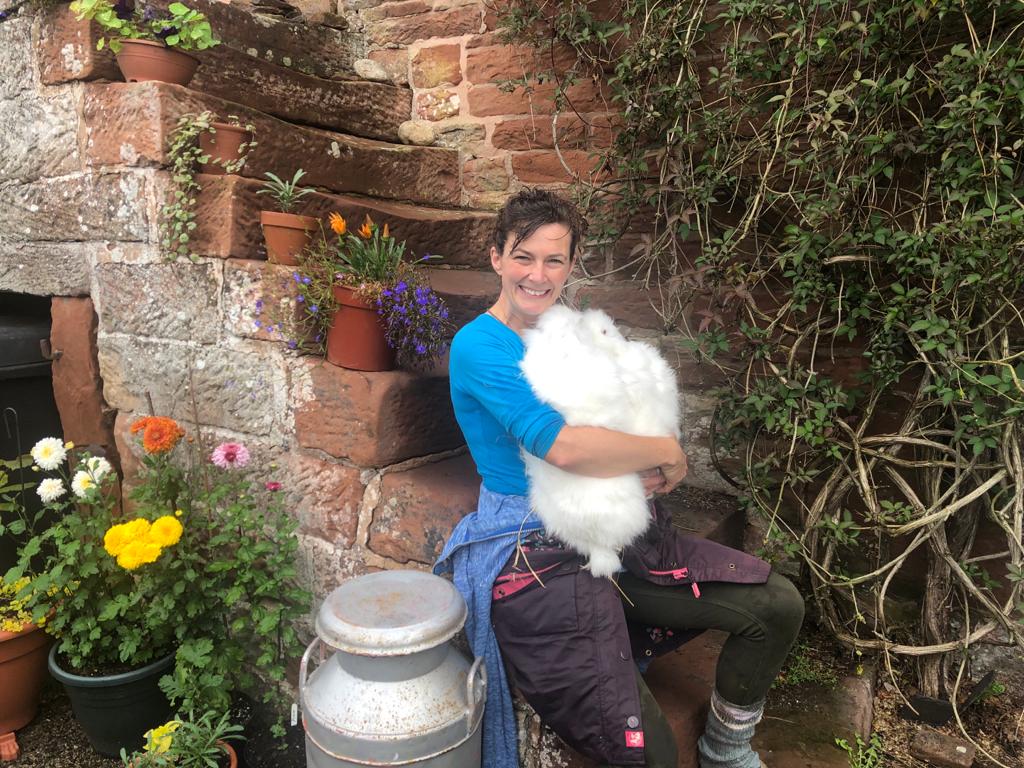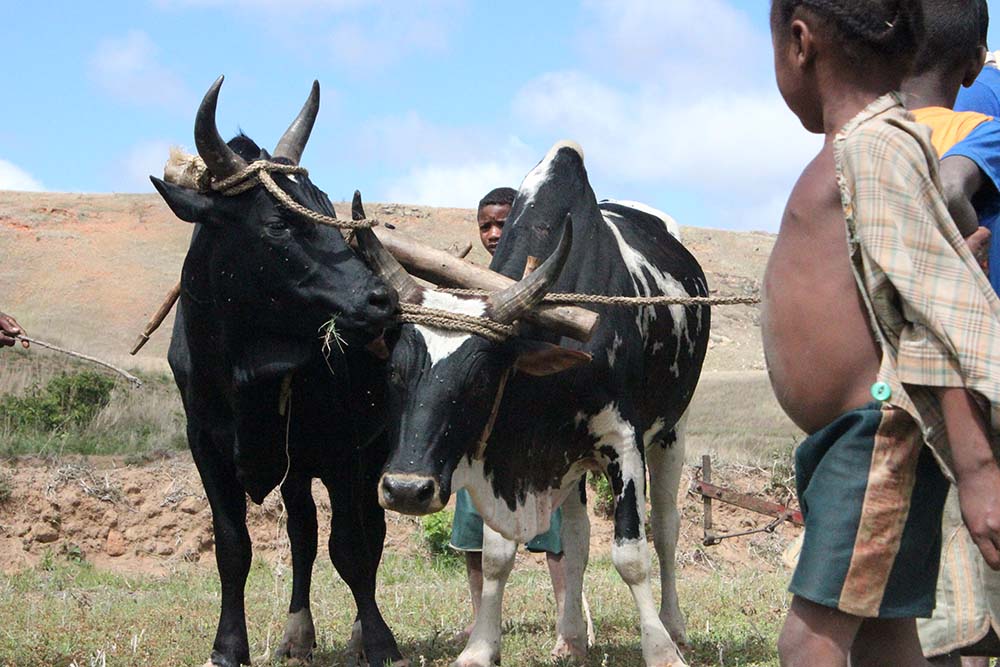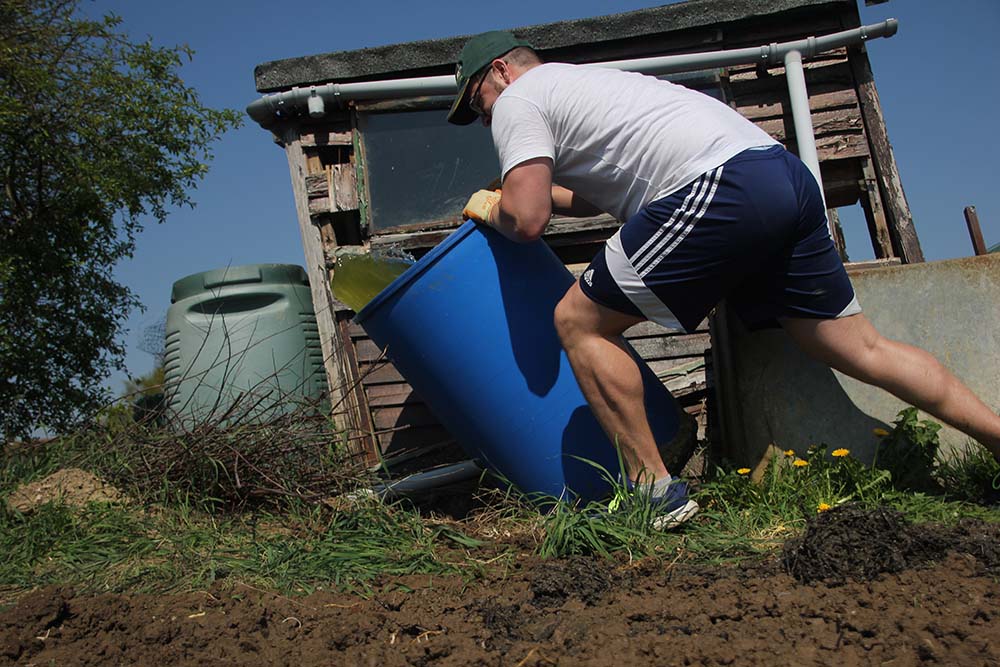

Why would YOU set up an organic fruit, vegetable or flower garden in your parish? Here are four good reasons. They are interconnected and each one could be the basis of many stimulating discussions!
In summary:
1.To reduce our carbon emissions to help the vulnerable to eat;
2. To protect and enrich the beauty and diversity of creation, including the life of the soil;
3. To heal our mental and physical health;
4. To engage with and witness to the ecologically-conscious, especially the young, on the fringes of or outside the Church.
Food production is a huge driver of climate change and pollution, accounting for around 25% of global greenhouse gas emissions 3. The vast majority of scientists agree that hugely increased carbon emissions from human beings are almost certainly responsible for dramatic changes in our climate. 1 Producing, storing and transporting our food contributes directly to the devastating poverty of others, through climatic changes, even if we don’t step foot on their land! (See Laudato Si’ 51) For example, a prolonged drought in Madagascar is causing famine and families being unable to feed their children.2 ‘I was hungry, and you fed me,’ says Jesus (Mt. 25: 35) in his summing up of what really matters in how we live our lives. Growing our own food has a direct link with allowing others to produce their own. A parish allotment allows us both to reduce our own GHG emissions and begin conversations with others about why this matters.

Until the industrial revolution, our food was produced locally and on a small scale. And until the Reformation monasteries were centres both of learning and mission, and vibrant, biodiverse and productive farms. Nowadays, so much of our fruit, vegetables and flowers are grown on an industrial scale using large-scale machinery and energy-intensive factory-made chemical inputs. We are called to ‘till and keep’ the garden of the world (Gen 2:15; LS 67), but in reality the soil is being degraded on a massive scale.4 According to Scripture, Job himself ‘did not exhaust the earth’ (Job 31: 38-39) but we seem to have abandoned this wisdom. A healthy soil contains billions of micro- and macro-organisms – all of them God’s creatures!- 5 which provide the fertility for plants. Industrial inputs and practices harm and destroy this life.
When reading books with children about farms, animals and wildlife, they are full of the vibrancy and beauty of creation: it is sad for them to discover the industrial reality of indoor pig farms, and vast, hedge-less, mono-cultural fields. Not only are we destroying the soil, but we are treating our animals cruelly, and despoiling our countryside. Organic growing is in harmony with nature, with God’s creation. It means avoiding chemical inputs of insecticides or herbicides, and keeping a strong focus on improving soil health. It benefits from years of collective wisdom, experience, scientific thought experiments and observation. The key is soil health, and it starts with using compost which can be made from waste products, creating a ‘closed cycle’ system .
A parish allotment allows us to demonstrate to the church community this more traditional way of growing and a reminder of our call to be stewards who ‘till and keep’ the earth.
60% of people in Britain are overweight, 6 10 billion pounds are spent on the treatment of Type II diabetes each year, and mental illness is increasing to staggering proportions.7 Could working in a market garden provide an alternative to sedentary desk-based jobs , improving our physical and mental well-being? The skills you might learn could be as literally fruitful as training an espaliered peach! Could volunteering at a local parish garden help those struggling with mental health difficulties and isolation? Is a cheap white loaf and pack of biscuits really what Jesus was envisaging when he encouraged us to give food to the hungry, given that we are facing a crisis of ill-health due to obesity? Or is it wholesome and nutritious food grown with care and love? Do we need to pay a gym membership to burn off energy moving machines, or could we get fit by being involved in local food production? Not only can we benefit mentally and physically through the exercise and time spent closer to nature, but we can be growing wonderful food and flowers for the Church and for those who need them!

‘God saw that it was very good’ (Gn.1:31). We live in an astoundingly beautiful world, and its beauty leads us to praise its Creator. But we are damaging and disfiguring this world that was made ‘through Him and for Him’ (Col. 1:16), and putting the lives of the younger generation and their children in great jeopardy by our energy-rich lifestyles and over-consumption. Many young people are passionately concerned about ‘green’ issues. If the people of the Church do not show in a concrete way that they understand that ‘everything is interconnected’, our young people will not have faith in the Church..
A parish allotment could allow opportunities for young and old to share concerns and faith, and exemplify ways of healing for both earth and people.
These are some reasons why starting a local food (not forgetting flowers for the church) growing project is a good thing, but how to go about it? It doesn’t have to be overwhelming or unmanageable.. the main benefit may be to initiate interesting and life-changing discussions based on some of the points above..
So…How?
In summary:
1. Start SMALL
2. Gather a team
3. Get help and advice
Do what you can do on a small scale. Remember – discussions that are initiated may bear fruit unexpectedly in many areas! Our parishes nearly always have a patch of land large enough for a pot of lettuce, and whatever else we do, they are an empowering place to start!
A parish allotment could allow opportunities for young and old to share concerns and faith, and exemplify ways of healing for both earth and people.
It is best to start by gathering a small team, using an advert in the parish newsletter to find out what strengths and skills are available – you will be amazed!
Decide on a small project to start with, which can be expanded the following year if it goes well. The ideas for projects will be as diverse as our parishes, but how about:
There is an abundance of material for aspiring organic growers on the web – but this can be overwhelming. We have tried to condense what parishioners find most useful on The Journey to 2030 parish allotment page. A good book or two can be equally helpful. Choose one or two and go slowly: gardening is about learning and making mistakes.
Remember to sign up to The Journey to 2030 newsletter so that you don’t miss out on the Laudato Si’ in your parish retreats. They can be a great way to make connections and share ideas.
Whatever you decide to do – be confident, be inspired, start small and enjoy the beauty of what you help to create and the wonderful discussions that it leads to!
Jane Pendlenton is a RHS trained organic gardener. She is incredibly enthusiastic about a revolution in care for the way we grow, share and consume food. She is a regular contributor in helping parishes with organic gardening queries and woes on the Boarbank hall “Living Laudato Si’ in your parish” retreats.
References:

Do you have an inspiring story that you would like us to feature? Write to The Journey to 2030 at info@journeyto2030.org or click the link below.

Find your diocese on the map and click to discover groups and contacts to support you in your diocese.

Let us keep you in contact so that we can send you all the latest news and alert you to new features, blogs and more…

Read the document that inspired The Journey to 2030.